A stinging reality
An insider to a Florida Beekeeper’s apiary
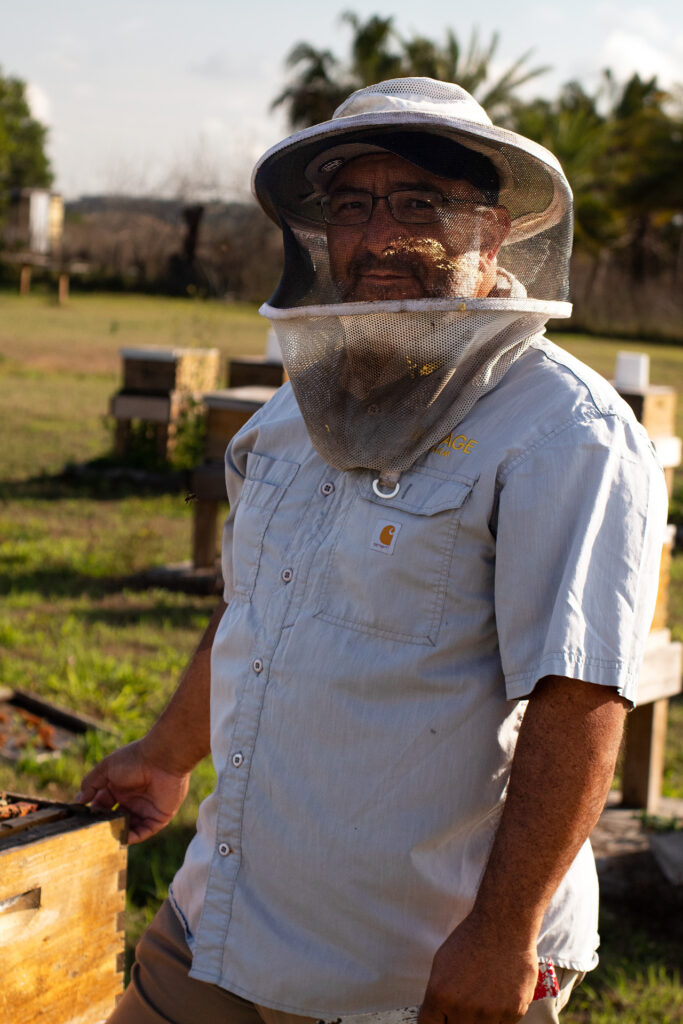
September 19, 2025 | story by Jack Vincent
photos by Jack Vincent
illustrations by Jack Vincent
This story is from Atrium’s Spring 2025 magazine, which released April 2025.
“Ready to see some bees?” Chris Vasquez, the owner of Heritage Bee Farm, said.
In the heart of Myakka City, surrounded by rolling hay bales and green pastures, sits Heritage Bee Farm. What began as a simple hobby for Vasquez erupted into a blooming business.
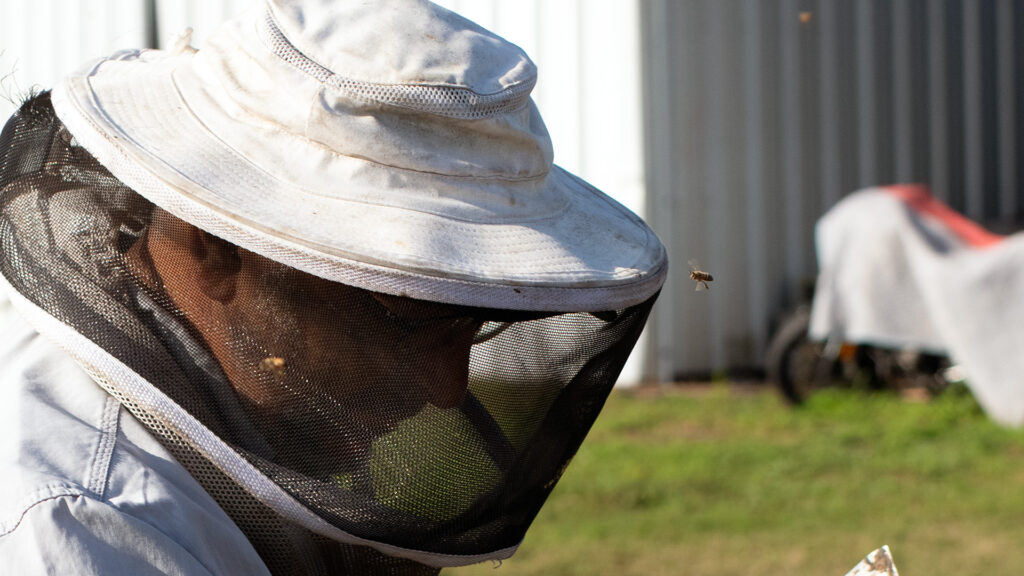
Heritage directly manages colonies spread out over three different counties: Sarasota, Manatee and DeSoto.
Vasquez not only has 2,500 colonies of bees but also a colony of his own. With nine children and three grandchildren, the farm has a well-managed team.
“We’re a family business,” Vasquez said.
Everyone has a little hand in the honey pot. His sons manage the farm, located about 30 miles from the hot summer beaches of Sarasota, and one of his daughters manages the farm’s sales.
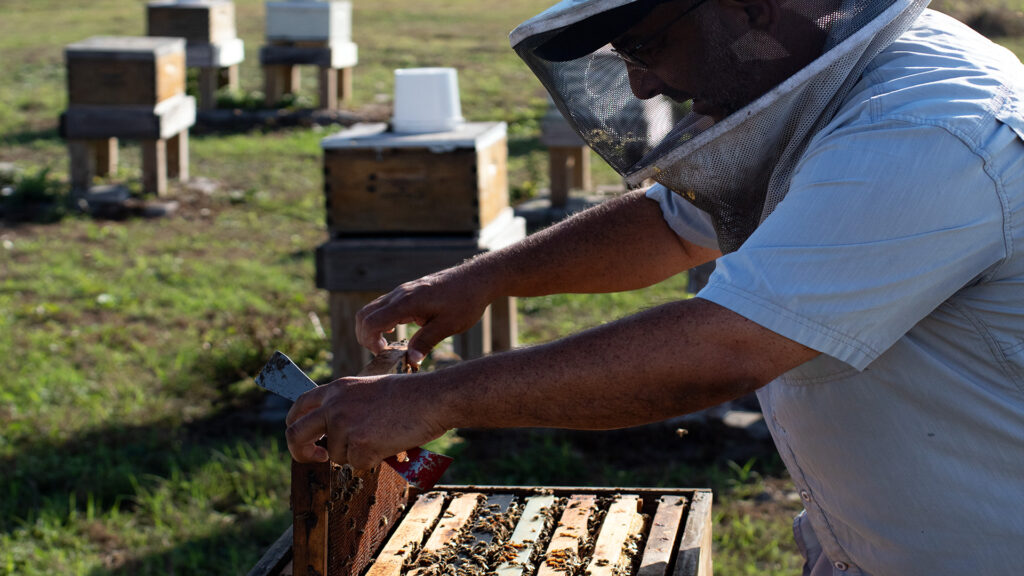
Rows of hives, with living and thriving colonies, are stacked at the farm where the matriarchal society forages on all the wildflowers that nature has provided. It’s a harmonious site with black and orange stripes across the landscape. The subtle hum and sweet lullaby of a songbird choir are all composed by the sweet nectar of the wild.
“We like to think that bees make honey for us, but they make it and store it for themselves,” Vasquez said.
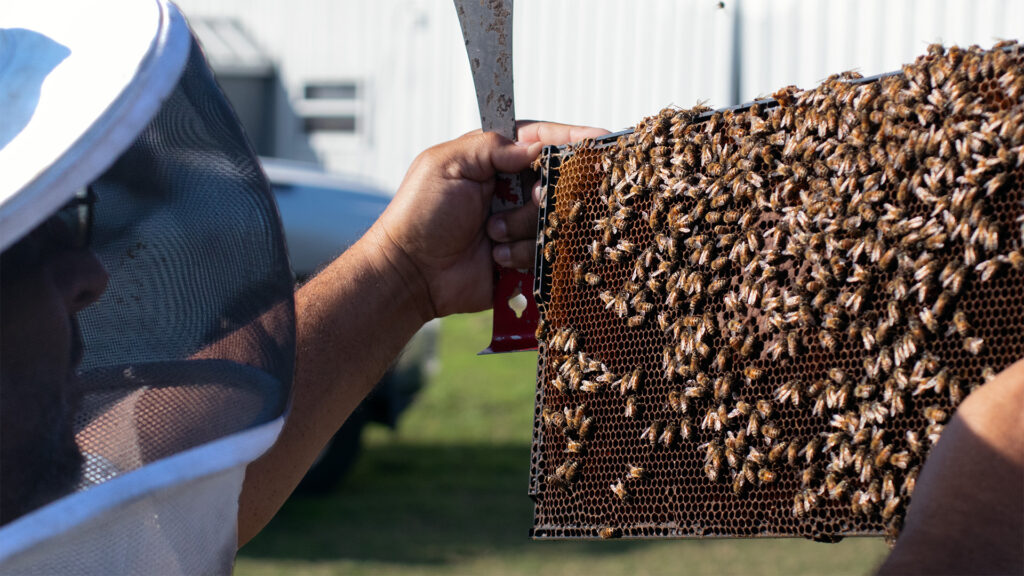
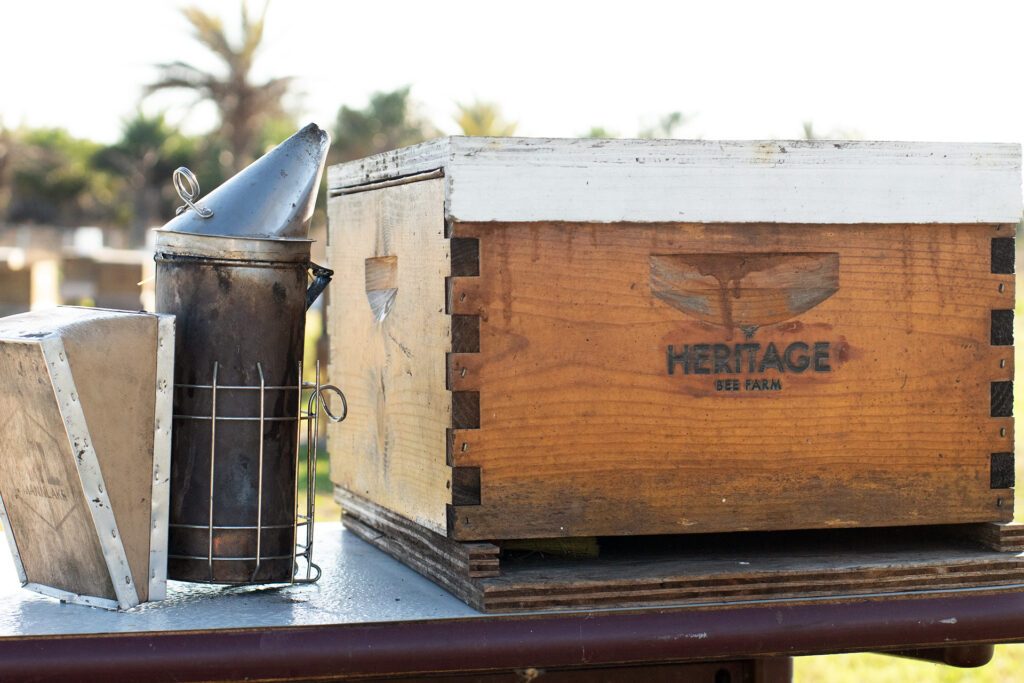
Heritage Farm sells a range of different honey-based products. It has 20 different varieties of handmade soaps, different types of raw and flavored honey, beeswax candles and infused honey.
Heritage also focuses on queen bee production. Beekeepers will artificially inseminate the queen to produce female worker bees. After feasting on the royal jelly, they will grow into reigning monarchs and eventually rule through a long-lasting lineage.
“You have to have, I think, some pretty thick skin to be a beekeeper,” Vasquez said.